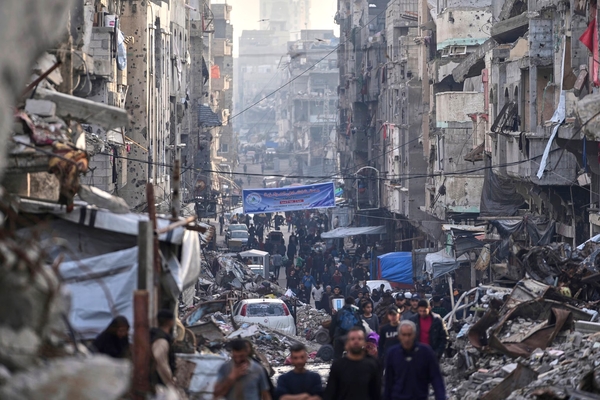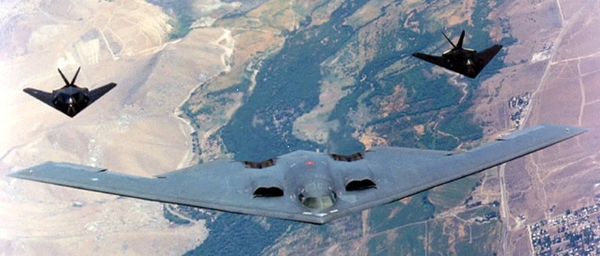New Delhi Post: Where do you see the Israeli-Iranian-Palestinian crisis going?
Daniel Pipes: Israel dealt handily with Iran but is confounded by Palestinians. Note how the two challenge Israel in opposite ways: Iran is a country of 90 million whose leaders aspire to nuclear weaponry; the Palestinians number not a tenth as many and dispose of no significant economic or military power. But Iran is so deeply isolated that no state gave it more than token lip service during its recent hour of tribulation – and the U.S. government even joined with Israel to attack it – while the Palestinians enjoy a uniquely powerful global support network that includes the government of France. Israel's military is strangely bifurcated: it achieves dazzling success against non-Palestinians but displays deep ineptitude against Palestinians. Together, these factors explain how the Israelis dispatched Iran in 12 days but after 660 days, continue to fight Hamas with little end in sight.
NDP: You have argued that Hamas must be defeated; is that morally and militarily feasible, especially in light of the many calls for a ceasefire and humanitarian truce in Gaza?
DP: As the horrors that Hamas inflicts not just on Israelis but also on Gazans become more evident with the passage of time, and as Gazans turn in ever-greater numbers against Hamas, it becomes the more urgent to end the dreadful grip of this jihadist, totalitarian organization. Eliminating Hamas is the most moral act possible in Gaza. Nothing positive can happen while it retains power.
 Protesters in Gaza on March 25, 2025, called for "Hamas out." |
NDP: After Oct. 7, do you stand by your prediction that there will be no Palestinian state and your argument for Israel victory?
DP: So long as the Palestinians indulge in rejectionism – the blanket refusal to accept the Jewish state of Israel – their goal of Palestine will remain elusive, for Israel will not allow into existence a state that seeks its own destruction. Contrarily, should Palestinians finally and truly accept Israel, Palestine can emerge. But that requires of Israel to stop managing its Palestinian enemy and instead defeat it. For an elaboration of this argument, see my 2024 book, Israel Victory: How Zionists Win Acceptance and Palestinians Get Liberated.
NDP: Are the Abraham Accords transactional deals vulnerable to regime change or are they enduring?
DP: The accords, signed almost five years ago, have weathered many crises, especially Oct. 7 and the Israel-Iran War. That they survived such stresses implies an enduring nature based on mutual benefit. Israelis seek normal relations with their neighbours, while a growing number of West Asians see Israel as the most reliable guarantor of their security, especially at a time of diminished U.S. commitment and reliability. For a vivid explanation of this new circumstance, see Gregg Roman's article, 'The Peace of the Victor.'
NDP: You make a point of distinguishing between Islam and Islamism; please elaborate on the significance of that distinction for policy-making.
DP: The distinction has vast importance. For one, modern secular states cannot possibly engage in a religious war on Islam, but they can battle the ideology of Islamism to extinction. For another, Muslims are the first and greatest victims of Islamism – think Iranians, Afghans, Pakistanis, and Bangladeshis – so they number Islamism's foremost enemies, with non-Muslims serving as their auxiliary. For policy-making, these two factors transform the battle from one of non-Muslim vs. Muslim to moderates vs. extremists.
 Hadi Matar, left, fulfilled Ayatollah Khomeini's edict by knife attacking Salman Rushdie, center right, at the Chautauqua Institution on Aug. 12, 2022. |
NDP: Your critics wrongly accuse you of fighting Islam, not Islamism; why?
DP: Doing so serves their purposes. Portraying me as anti-Islam makes me look bad, so they distort my views: I take no position on Islam the religion but fervently oppose Islamism, the century-old totalitarian ideology akin to fascism and communism. They never acknowledge my well-known slogan, 'Radical Islam is the problem, reform Islam is the solution.'
NDP: Your critics also hold that your hostility to Islamism feeds 'Islamophobia' and stigmatises mainstream Muslim communities; please respond.
DP: Quite the contrary, hostility to Islamism provides a basis for Muslims and non-Muslims to cooperate against an extreme, dictatorial, and violent force. This common purpose encourages comradery and friendship across religious lines.
NDP: You support 'moderate Muslims' as a counterforce to Islamism, but who qualifies as 'moderate'?
DP: Indeed, that is a challenge, especially because of the widespread Islamist practice to dissimulate, pretending to be oh-so-moderate. A number of analysts (Tarek Heggy, Zuhdi Jasser, a RAND Corporation group, Tashbih Sayyed, "Sam Solomon," Robert Spencer) and even the German state of Baden-Württemberg have offered ideas to distinguish moderates from Islamists. In 2017, I provided my own list of 93 questions, plus the methodology to apply them, at "Smoking Out Islamists via Extreme Vetting." The process requires a protracted commitment of talent, resources, and time. Once implemented, procedures over time will grow more effective.
NDP: Realistically, can governments identify and empower moderate Muslims?
DP: Why not? Moderates generally lack funds and suffer wide a double rejection from both Islamists and suspicious non-Muslims, so they welcome taxpayer support. This will prove an excellent investment, though government agencies must be hyper-vigilant about Islamist wolves in sheep's clothing.
NDP: Is a secular Arab renaissance possible, or is Islamism too deeply entrenched?
 Ahmed Lotfi El Sayed (1872-1963), an Egyptian writer, symbolized the Arab renaissance that ended about a century ago. |
NDP: What is your biggest future worry about the West Asia?
DP: I worry that an Islamism 2.0, led by the governments of Türkiye, Pakistan, Bangladesh, and Malaysia, will surge ahead. By this, I mean an Islamism less violent, more sophisticated and successful than the earlier and decliningversion.
NDP: Why do mainstream media outlets downplay Islamist threats?
DP: I'll limit myself to media in countries where Muslims form a minority of the population. Since the Iranian Revolution of 1978-79, the Left has increasingly aligned itself with Islamism. This results less from shared views (think private property and the status of women) and more because they share common foes (think the United States and Israel). That said, each over time has tended to adopt the other's viewpoint and causes: leftists support blasphemy laws, Islamists adopt socialism. Mainstream media, almost by definition left-leaning, fits this pattern.
NDP: Why does the mainstream media misrepresent West Asian conflicts?
DP: leftists and Islamists adopt the other's viewpoint and causes, the non-Muslim Left apologizes for the Islamic Republic of Iran and adopts anti-Zionist positions.
NDP: Has 'wokeism' in the American academy and media fundamentally reshaped the narrative on Israel, jihadism, and West Asia?
DP: A few years ago, I worried about this prospect but now doubt it. Yes, woke politicians have succeeded in select areas of the United States – note the Indian-origin candidate for mayor of New York City – the Democratic party fared poorly in the most recent elections and other indications suggest it has fallen to unusual lows. As someone who lived through the last leftward push in the United States, that of 1965-75, I am increasingly confident that this one too, with its excesses ('Defund the police,' abolishing immigration controls, men allowed in women's public toilets, gender pronouns, land acknowledgements) will also fade.
NDP: France is the first major Western country to recognise the State of Palestine; what are the consequences of this shift?
DP: This recognition confirms the Palestinians' extraordinary global support. It worsens Israel's predicament. But it does not bring Palestine a millimetre closer to reality. That requires a Palestinian acceptance of Israel.
NDP: Do you see U.S. foreign policy in West Asia as too assertive, too timid, or just right?
DP: I agree with the analyst Steven A. Cook that Washington has been too ambitious for the past three decades and now must reduce its goals. Throughout the Cold War, he notes, the U.S. government 'successfully secured its interests in the Middle East,' where those interests were defined as 'preventing the disruption of oil exports from the region, helping to forestall threats to Israeli security, and ... containing the Soviet Union.' After the Cold War ended, however, Washington 'sought to transform politics and society in the Middle East,' for example, by promoting democracy. But that dismally failed. Cook concludes from this record that 'when the United States sought to prevent "bad things" from happening to its interests, it succeeded. However, when Washington sought to leverage its power to make "good things" happen in the service of its interests, it often failed.' Looking ahead, the U.S. government needs 'a vision for its role in the Middle East that dispenses with idealist romance about remaking the world in favour of a strategy based on prudence, discretion, and a balance of resources.' This means reverting to modest Cold-War-era-style policies such as access to oil, assuring Israel's security, anti-WND proliferation, and deterring Russia and China.
NDP: Were the United States to pivot away entirely from the region, who would benefit the most: Russia, China, or Islamists?
DP: I cannot imagine the United States completely abandoning its interests in West Asia because the frequency and severity of crises there keep pulling it back. As I wrote back in 2012, West Asia is 'located at the centre of the inhabited world, it bristles with dangers, including tyranny, violence, WMD, and war. These affect everything from sea lane security to refugee immigrants to domestic security arrangements. ... Only in the Middle East are whole countries in danger of extinction. Several countries have descended into anarchy.' I would alter a well-known expression to, 'You may not be interested in West Asia, but it is interested in you.' That said, to the extent the United States does leave the Middle East, China will most benefit, for it has put an infrastructure of influence in place. In contrast, both Russia and Islamists are in decline.
NDP: Has the United States irreversibly lost the ability to shape outcomes in West Asia to Russia, China, and Turkey?
DP: No. Washington retains a pre-eminent ability to shape in West Asia. It boasts a unique network of allies. It has the greatest economic and diplomatic sway. And, as the June 2025 attack on Iran nuclear facilities showed, it has an unmatched ability to make war.
 U.S. air power in the form of a B-2 (foreground) and F-117As (background), during an undated training exercise. |